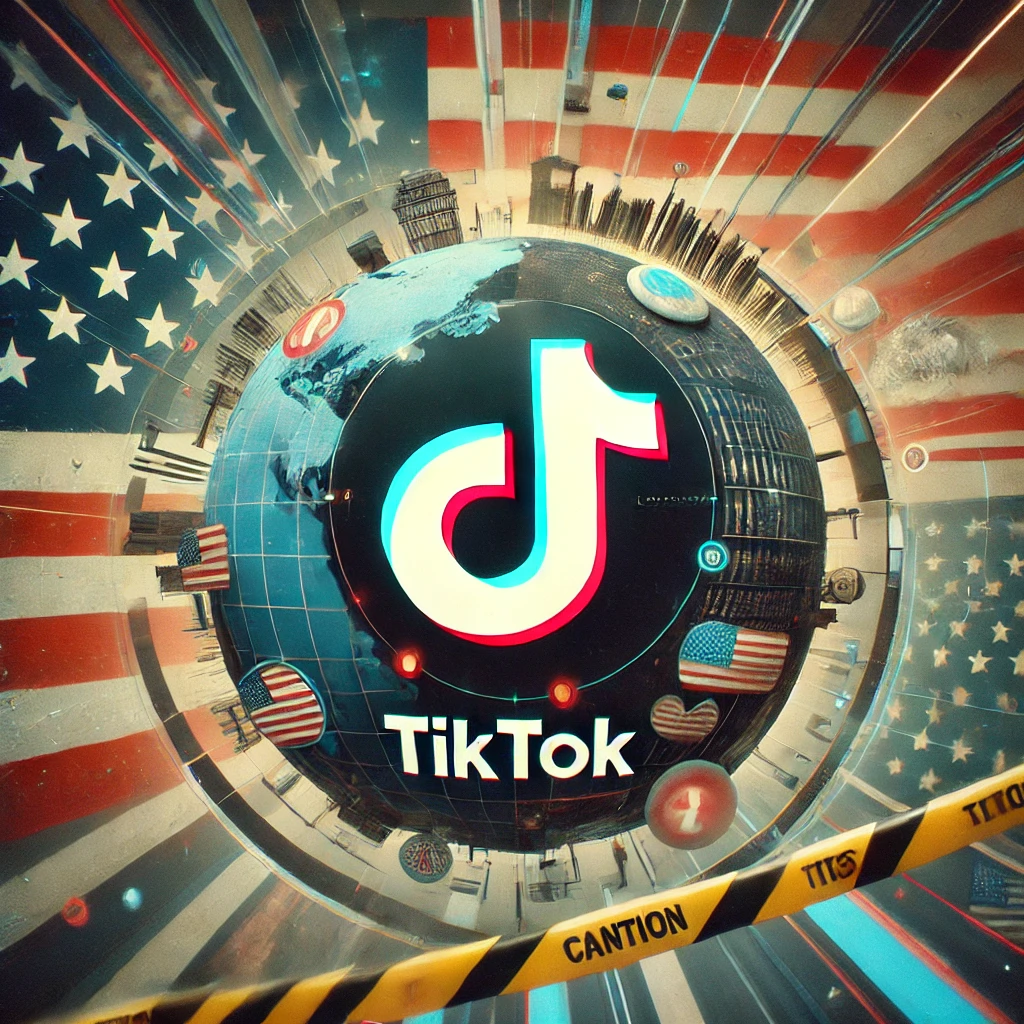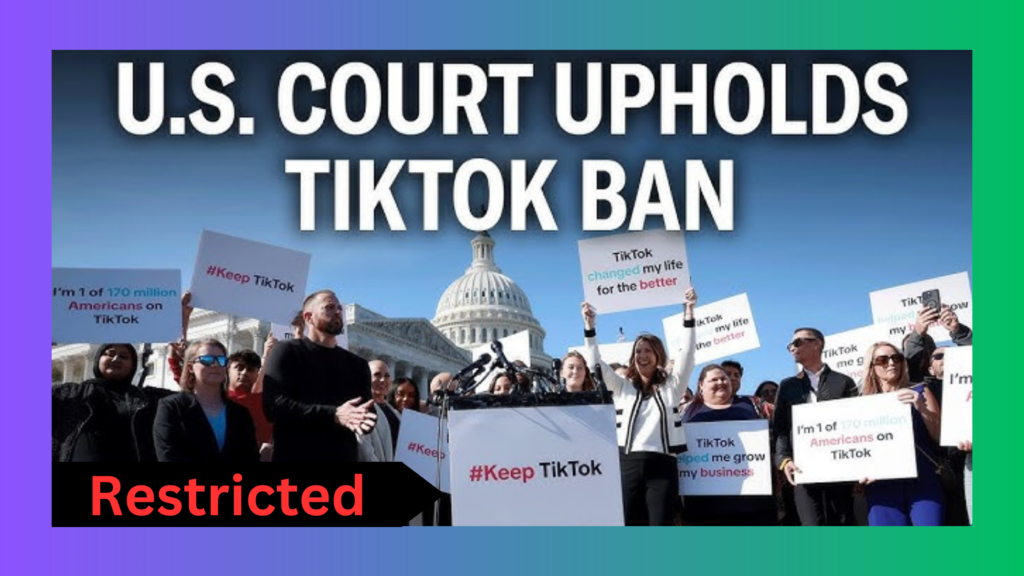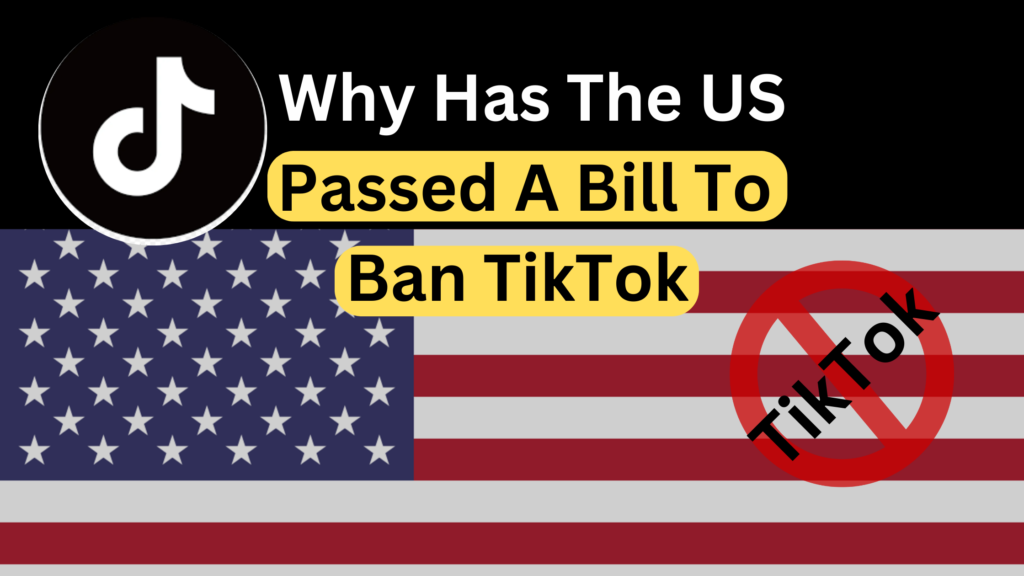US Taking First Step To Ban TikTok In America
TikTok, the social media giant, now faces a major threat in the United States. A potential ban. This comes after TikTok lost its bid to overturn a new law that imposes stricter regulations on foreign-owned apps, especially those originating from China. This legal setback has, therefore, triggered widespread discussions about the app’s future and its implications for the millions of users and content creators who, in turn, rely on TikTok for their daily entertainment, business, and social connections.

In this blog post, we will, first, explore the background behind TikTok’s legal troubles, then examine the potential consequences of a U.S. ban, and finally discuss how this could impact TikTok users, influencers, and the social media landscape at large.
Why Is TikTok Facing a U.S. Ban?
TikTok, owned by the Chinese tech company ByteDance, has long been under scrutiny by U.S. lawmakers and security experts. Additionally, the app’s massive popularity in the United States—along with its ability to collect vast amounts of user data—has led to growing concerns over national security. Consequently, U.S. government officials have repeatedly raised alarms about the possibility of the Chinese government accessing sensitive user data through the app. This fear has, moreover, intensified amid the increasing geopolitical tensions between the U.S. and China.
In response to these concerns, the U.S. government passed a law. Aimed at restricting the operations of foreign-owned apps that pose national security risks. Specifically, this law targets apps like TikTok, which are owned by companies based in countries with strained diplomatic relations with the U.S. In turn, TikTok’s owners fought back against the law in court, arguing that it violated their First Amendment rights and was based on unsubstantiated fears. Unfortunately for TikTok, however, their legal challenge failed, thus paving the way for the U.S. government to enforce the new law.

The Legal Battle: TikTok’s Efforts to Overturn the Law
The legal battle between TikTok and the U.S. government has been a high-stakes affair. The company’s defense, moreover, rested on two main arguments: first, that the law violated TikTok’s constitutional rights, and second, that there was no solid evidence proving TikTok posed a national security threat. TikTok argued that it operates independently from the Chinese government and that its U.S. user data is stored on American soil, thus minimizing the risk of foreign government access.
Despite these arguments, the court ruled in favor of the U.S. government, allowing the law to move forward. The ruling has left TikTok’s future in the U.S. uncertain, as the company now faces the possibility of being forced to either make substantial changes to its operations or shut down entirely in the U.S. market.
How Could a TikTok Ban Impact U.S. Users?
A potential ban of TikTok in the U.S., consequently, would be a major disruption for its millions of American users. The app has, in fact, become deeply ingrained in the daily lives of many, providing a platform for entertainment, news, and social interaction.. For some, TikTok is more than just an app; it’s a source of inspiration, a place to unwind, and a hub for viral trends.
- Loss of Entertainment and Social Connections: TikTok has created a unique social ecosystem where users share short-form videos, engage in challenges, and discover content from creators worldwide. A ban would leave a significant void in the social media space, forcing users to turn to alternative platforms. While apps like Instagram Reels and YouTube Shorts may try to fill the gap, they do not offer the same experience as TikTok’s algorithm-driven, highly interactive platform.
- Access to Information and Education: Many users also turn to TikTok for educational content, ranging from quick tutorials and life hacks to in-depth discussions on various topics. The app has given rise to “TikTok educators” who offer accessible learning experiences. The loss of TikTok would take away a valuable tool for informal learning and information sharing.
- User Privacy and Data Security Concerns: One of the core reasons behind the potential ban is concerns over data privacy. While TikTok insists that it follows data protection laws and has implemented robust security measures, U.S. lawmakers remain unconvinced. A ban could lead to stricter data privacy regulations for all social media apps in the U.S.

Impact on TikTok Creators and Influencers
A U.S. ban would severely impact creators and influencers who rely on TikTok for their careers. For these individuals, TikTok is not just a pastime; it’s a business. Many influencers generate significant revenue through brand deals, sponsored content, live streams, and merchandise sales. A ban would force them to find alternative platforms to reach their audiences.
- Income Loss for Creators: TikTok is a major income source for influencers with large followings. A U.S. ban would disrupt creators’ income, forcing them to move to platforms like Instagram, YouTube, or Snapchat. These platforms lack TikTok’s viral potential, which could reduce creators’ earnings.
- Difficulty in Building New Audiences: Creators may struggle to transfer their TikTok audience elsewhere. TikTok’s algorithm allows creators to reach millions by making videos go viral. Other platforms lack TikTok’s organic reach, making it harder for creators to rebuild their influence.
- Disruption of Content Creation: TikTok’s user-friendly interface and short-form video format have revolutionized content creation. Many creators have mastered the art of producing viral content with minimal resources. A TikTok ban would force creators to adjust to new formats and algorithms, making it harder to sustain their creativity.
What Could Happen Next?
While the legal defeat is a major setback for TikTok, the app’s future in the U.S. is still uncertain. Several possible scenarios could unfold in the coming months:
- Complete Ban: If the legal challenges continue to fail, a full ban on TikTok in the U.S. could be implemented. This would mark a significant milestone in the ongoing debate over foreign influence in U.S. digital platforms. A ban would prevent U.S. users from accessing the app, disrupting the social media landscape.
- Reforms to Address Data Privacy: In order to comply with the U.S. government’s concerns, TikTok could make significant changes. Its data storage and management practices. This might involve moving U.S. user data to local servers or restructuring its relationship with ByteDance. That ensure more transparency and security. These changes could allow TikTok to remain operational in the U.S. market.
- Ongoing Legal Appeals: TikTok could continue to challenge the law through the courts, potentially seeking a more favorable ruling. Moreover, the company may argue that the ban violates its rights and harms its business. Ultimately, the outcome of these legal battles will determine whether TikTok can continue to operate in the U.S. or be forced to exit the market.